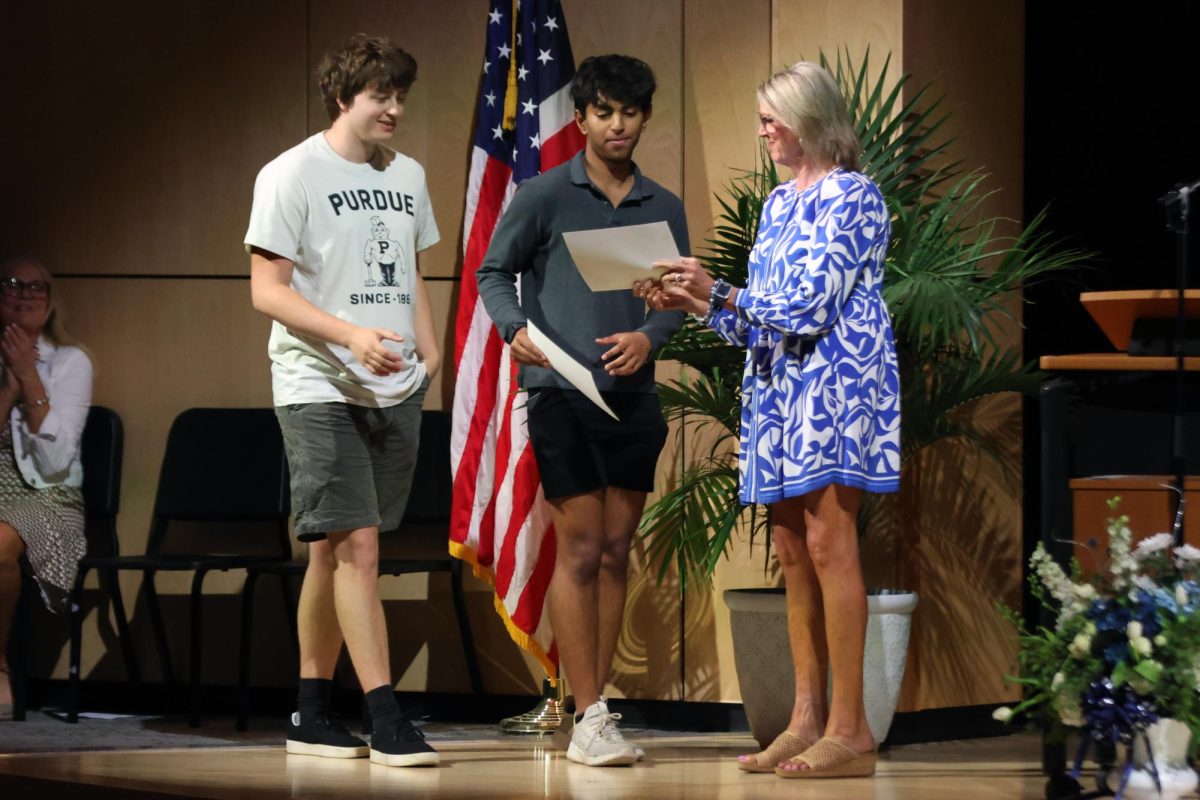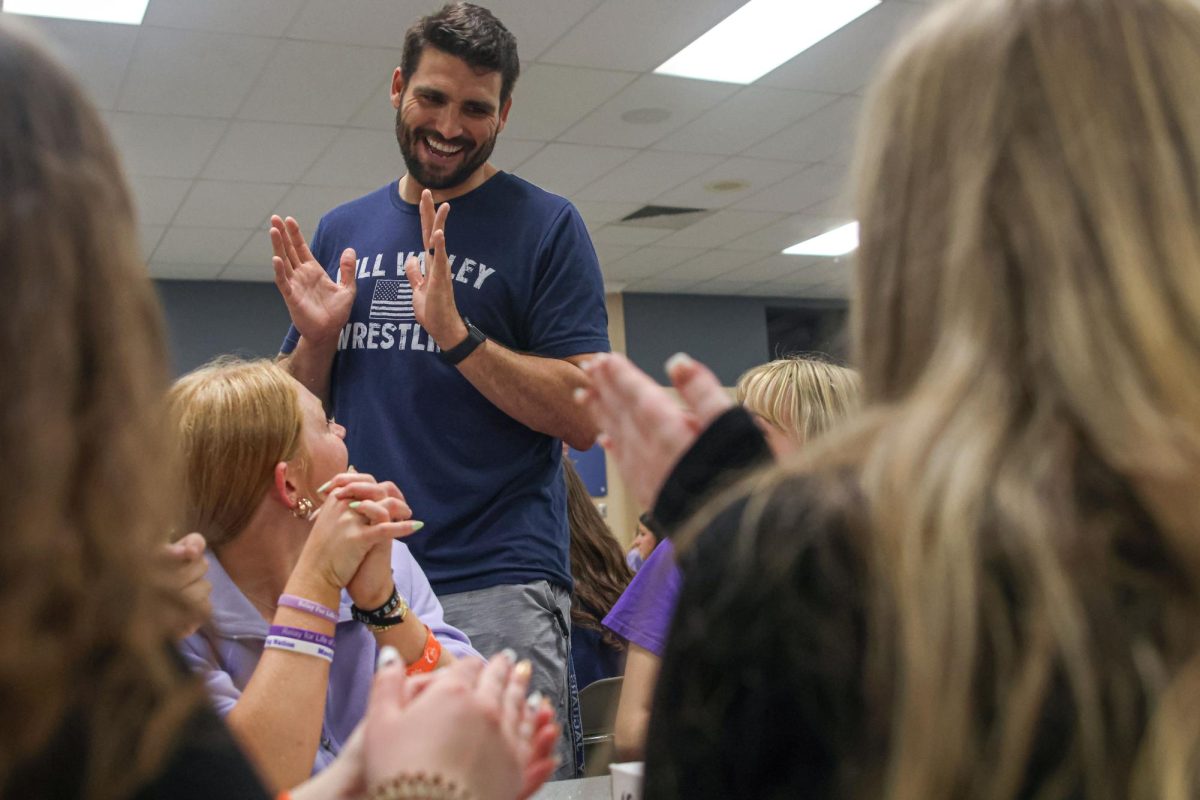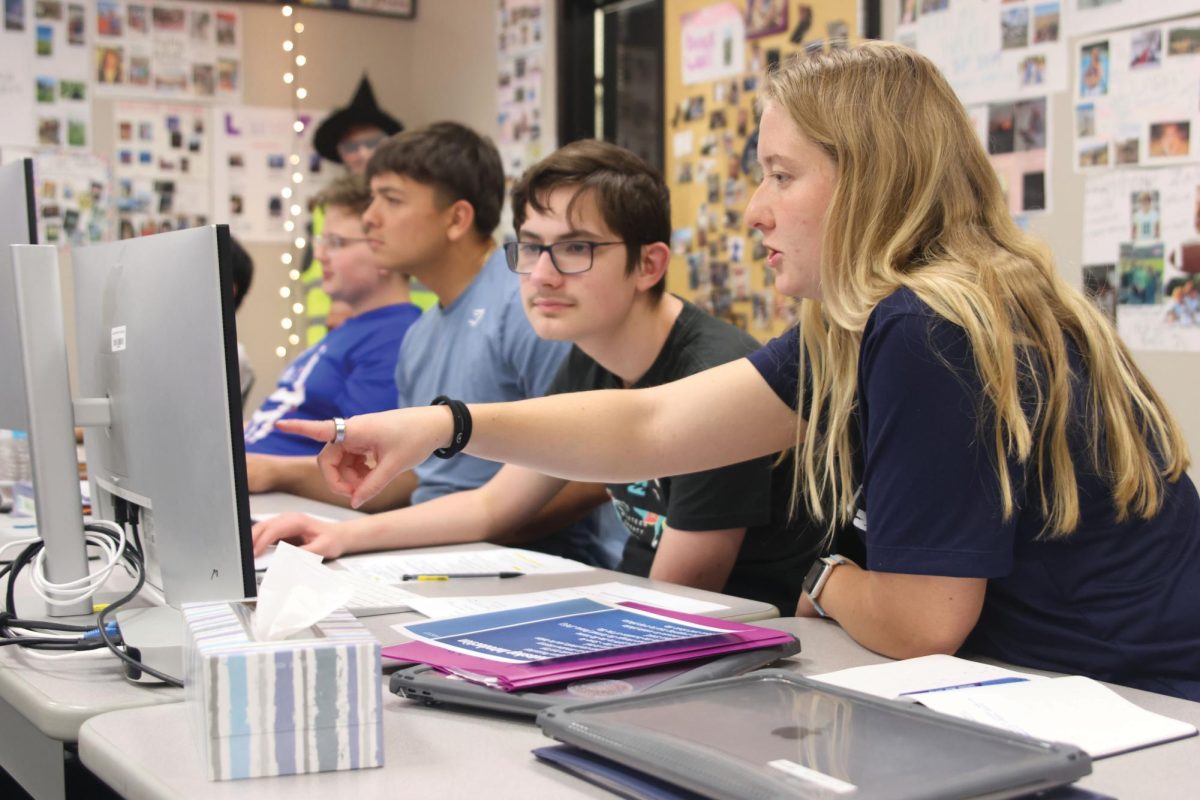In its second year of implementation, the freshman mentoring program has undergone numerous changes in order to improve its effectiveness.
In the past, mentors could only be selected from the junior and senior class; now students can be recommended as early as sophomore year. Associate principal Jennifer Smith changed this when sophomores McKenzie Koch and Brooklyn Sloop inquired about being mentors.
“The main reason I added sophomores was because they had just finished the course work and would have a good idea of what the teacher’s expectations would be,” Smith said.
Koch believes that going through Freshman Academy has helped her to be a better mentor now.
“Last year we just had junior and seniors and they could help us with homework the best they could but they had never been through Freshmen Academy,” Koch said.
To make the program more helpful to freshmen, the 84 mentors now have topics, which are assignments given to mentors by Smith. Topics range from getting to know the freshmen to helping them get organized. It’s up to the mentors to come up with ways of completing these topics.
Junior Zack Rowan began the year helping students stay organized.
“Me and the other mentors had locker clean up to show them how to stay organized and to show how being organized helps through high school,” Rowan said.
Along with those topics, seminars now have a challenge every month. The first month’s challenge was getting everyone in the seminar to get their seminar passes signed correctly. The second month’s challenge was getting everyone to go to an activity, and this month’s challenge is homework completion.
“I feel like the monthly challenges are sometimes helpful but I don’t feel like the freshmen have fun participating in them,” sophomore Ellen Bodine said.
According to Smith there are a lot of challenges that have to be faced with having mentors in seminar.
“The biggest challenge is communication between the mentors and the seminar teachers,” Smith said.
This year mentors are permanently in the freshman seminars to eliminate dependability problems.
“Last year we had mentors who weren’t enrolled in our classes, they just came in,” science teacher Betsy Meeks said. “Sometimes they didn’t show up so we couldn’t really count on them.”
Last year there were only two mentors for each freshman seminar; now there are up to eight. Meeks likes the change.
“I like having that many mentors because there’s always someone here and they’re all from different grades, not just seniors,” Meeks said. “The only thing I don’t like is that it makes seminar crowed. I don’t have enough seats for those who come in to make up work.”
Another problem is that some mentors are having trouble balancing their own school work with assisting the freshmen.
“Finding time to actually be a mentor is challenging,” sophomore Courtney Deuschle said.
Also it’s hard to find a place for mentors to work one-on-one with the students, without causing the other students to begin talking.
“The key thing is that everyone has to study, and the mentors need to realize that,” computer teacher Patricia Brock said. “We can’t just single out the students that have good study skills from the ones that need more help. Studying trumps socializing.”
While they are encouraged to be positive role models, mentors also face some challenges relating to the freshmen.
“It’s hard to relate to them because they are on a way different level,” Rowan said. “They have their ways of doing things and they’re new to the school and they’re use to middle school rules. They don’t understand that they’re not in middle school anymore.”
The transition from middle school to high school can be intimidating, so mentors are chosen to help ease the stress of a new environment. Though the mentoring program has it is flaws, Smith still stands behind the system.
“I think the mentoring process is very valuable,” Smith said. “It helps freshman both academically and socially.”







